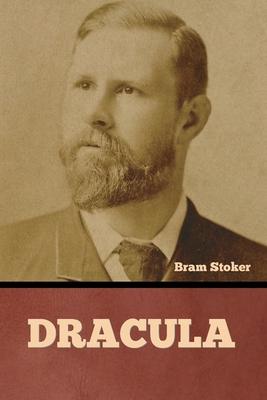Dracula is a novel by Bram Stoker, published in 1897. An epistolary novel, the narrative is related through letters, diary entries, and newspaper articles. It has no single protagonist, but opens with solicitor Jonathan Harker taking a business trip to stay at the castle of a Transylvanian nobleman, Count Dracula. Harker escapes the castle after discovering that Dracula is a vampire, and the Count moves to England and plagues the seaside town of Whitby. A small group, led by Abraham Van Helsing, hunt Dracula and, in the end, kill him.
Dracula was mostly written in the 1890s. Stoker produced over a hundred pages of notes for the novel, drawing extensively from Transylvanian folklore and history. Some scholars have suggested that the character of Dracula was inspired by historical figures like the Wallachian prince Vlad the Impaler or the countess Elizabeth Bthory, but there is widespread disagreement. Stoker's notes mention neither figure. He found the name Dracula in Whitby's public library while holidaying there, picking it because he thought it meant devil in Romanian.
Following its publication, Dracula was positively received by reviewers who pointed to its effective use of horror. In contrast, reviewers who wrote negatively of the novel regarded it as excessively frightening. Comparisons to other works of Gothic fiction were common, including its structural similarity to Wilkie Collins' The Woman in White (1859). In the past century, Dracula has been situated as a piece of Gothic fiction. Modern scholars explore the novel within its historical context-the Victorian era-and discuss its depiction of gender roles, sexuality, and race.
Dracula is one of the most famous pieces of English literature. Many of the book's characters have entered popular culture as archetypal versions of their characters; for example, Count Dracula as the quintessential vampire, and Abraham Van Helsing as an iconic vampire hunter. The novel, which is in the public domain, has been adapted for film over 30 times, and its characters have made numerous appearances in virtually all media. (wikipedia.org)
About the author:
Abraham Stoker (8 November 1847 - 20 April 1912) was an Irish author who wrote the 1897 Gothic horror novel Dracula. During his lifetime, he was better known as the personal assistant of actor Sir Henry Irving and business manager of the West End's Lyceum Theatre, which Irving owned.
In his early years, Stoker worked as a theatre critic for an Irish newspaper, and wrote stories as well as commentaries. He also enjoyed travelling, particularly to Cruden Bay where he set two of his novels. During another visit to the English coastal town of Whitby, Stoker drew inspiration for writing Dracula. He died on 20 April 1912 due to locomotor ataxia and was cremated in north London. Since his death, his magnum opus Dracula has become one of the most well-known works in English literature, and the novel has been adapted for numerous films, short stories, and plays.
... (wikipedia.org)
